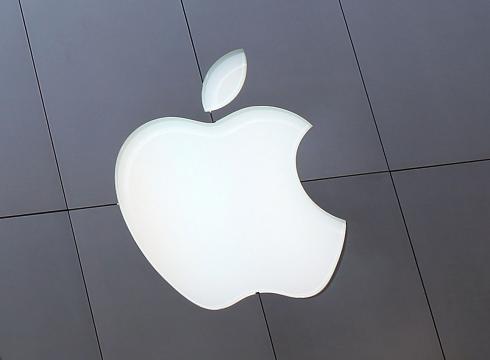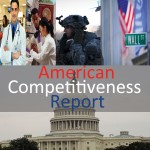
Apple’s spotlight shines attention on needed tax reforms
The appearance of an Apple CEO in front of a bank of cameras is enough to get the company’s diehard fans worked up into a frothy lather over a new iPhone or an even thinner MacBook Air.
 Tuesday’s appearance by Apple CEO Tim Cook and other senior execs, however, was one for the wonks. The company was on the defensive before a powerful Senate subcommittee over the tech giant’s corporate tax practices. Mr. Cook defended the Cupertino, Calif.-based company, pushing back on a Senate Permanent Subcommittee on Investigations report that Apple was using offshore accounting tricks to dodge taxes on billions of dollars in profits. Yet Mr. Cook also used the spotlight to call for a simpler corporate tax code and lower tax rates, even if it meant Apple paying out more to the U.S. government. See Apple’s statement.
Tuesday’s appearance by Apple CEO Tim Cook and other senior execs, however, was one for the wonks. The company was on the defensive before a powerful Senate subcommittee over the tech giant’s corporate tax practices. Mr. Cook defended the Cupertino, Calif.-based company, pushing back on a Senate Permanent Subcommittee on Investigations report that Apple was using offshore accounting tricks to dodge taxes on billions of dollars in profits. Yet Mr. Cook also used the spotlight to call for a simpler corporate tax code and lower tax rates, even if it meant Apple paying out more to the U.S. government. See Apple’s statement.
Indeed, the U.S. tax code is too complicated and the corporate rate at 35% is among the highest in the world. It takes little imagination to see why companies are willing to get creative, even if it means drawing the ire of lawmakers. In prepared testimony, Apple said it pays a 30.5% rate in federal taxes. Lawmakers can’t fire a tech CEO like Mr. Cook or dock their bonus, after all, but shareholders can.
This situation hurts American competitiveness on many levels. It also injects politics into an issue that needs quick action and clear-minded solutions.
The World Economic Forum’s most recent survey of competitiveness found that the U.S. tax rate for corporations and tax regulations were among the top reasons executives cited for America’s declining ranking. The U.S. is ranked 7th globally after falling steadily from first place in the 2008-2009 survey. See WEF report.
executives cited for America’s declining ranking. The U.S. is ranked 7th globally after falling steadily from first place in the 2008-2009 survey. See WEF report.
The task for the White House and Congress is to eliminate loopholes, lower the corporate tax rate and smooth the way for repatriating offshored cash. Those are longer-term fixes but they can become near-term realities by getting executives like Mr. Cook on board.
Near term, until the laws change, this remains a corporate issue. With celebrity executives taking the stand the focus will be on CEOs and CFOs.
For Washington’s influencers, that is the wrong place to direct their attention. It is ultimately an issue for the board of directors, the very people who hire and fire CEOs. They are the ones who set standards and keep a company’s strategic compass pointed in the right direction.
The challenge for corporate boards is to come up with a compelling plan for all that potentially U.S.-bound money that shareholders will find credible. Simply bringing it home to be taxed won’t pass muster, even if it is at a reduced rate from today’s levels. Apple’s recent $17 billion debt sale underscores that cash-hungry shareholders will get satisfaction, but it will be through engineered transactions such as this one rather than bringing cash back to the U.S. to be taxed at a high rate. Remember that through dividends and stock buybacks Apple shareholders have been promised $100 billion during the next three years.
It is also important to remember that shareholders demand value for their investment in a firm. As the World Economic Forum report indicates, there is a sense that the U.S. does not offer the edge that it once did to the world’s major companies. Congress should keep this in mind. Each tax dollar collected is, in a sense, an investment in the American system. Ensuring it is a worthwhile investment will help boards of directors and CEOs make the case for repatriating foreign profits.
Technology should not be the only place to find innovation in America. Congress could do with it a little bit too, especially when it comes to taxes.







[…] Read more at the American Security Project’s Flashpoint blog. […]